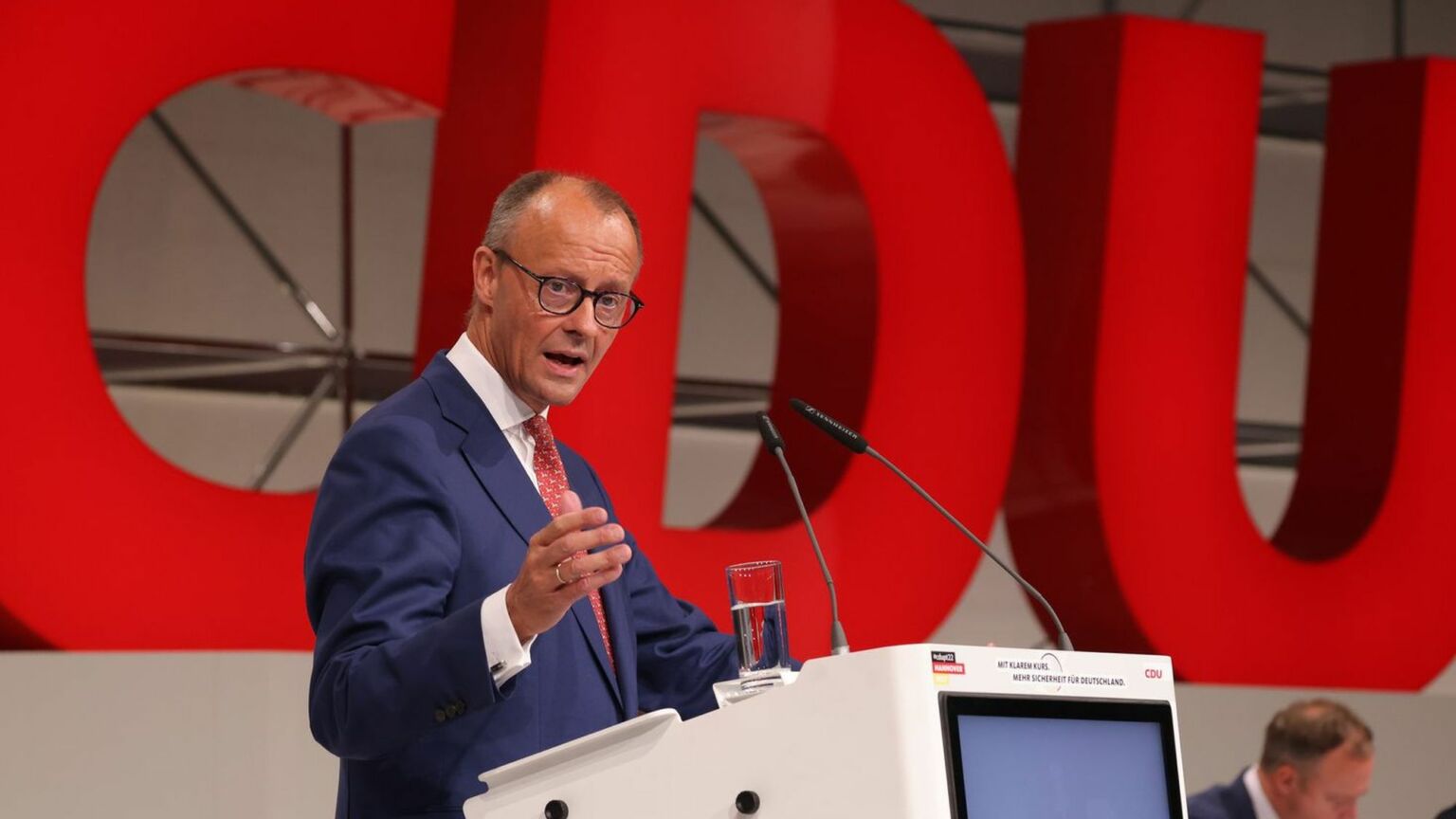AfD voters can’t be ignored forever
The rise of populism is provoking hysteria among the German elites.

Want to read spiked ad-free? Become a spiked supporter.
The rise of the AfD (Alternative für Deutschland), Germany’s right-wing populist party, is continuing to rattle the political establishment. Last month, the leader of the centre-right Christian Democratic Union (CDU) caused uproar when he suggested that his party might be willing to cooperate with the AfD at the local level.
In a recent interview with TV channel ZDF, Friedrich Merz said that if an AfD mayor was elected in a town or municipality, then ‘it is only natural that we have to look for ways to ensure that we can continue to work together in the city’. It was clear, he added, that the results of democratic elections had to be accepted. His statement came just after the AfD won its first district council election and its first mayoral seat. The AfD has also been soaring in the polls nationwide. It now places ahead of chancellor Olaf Scholz’s ruling Social Democrats (SPD).
Merz’s comments provoked a near hysterical reaction, even from within his own party. He has since had to beat a humiliating retreat. ‘To be clear, once more, and I’ve never said it differently… There will be no cooperation with the AfD, even at the municipal level’, he tweeted just two days after the interview.
Essentially, Merz stands accused of threatening to break the cordon sanitaire that all of the mainstream parties in the Bundestag have agreed to place around the AfD. The CDU, the SPD, the Free Democrats and the Greens have all passed resolutions against forming coalitions with the populists. Now many fear that Merz’s CDU might be willing to break this long-standing taboo. Even his retraction didn’t calm things down. ‘This is the classic pattern of trying to move a red line step by step’, said Kevin Kühnert, the general secretary of the SPD.
The row has underlined just how much pressure the CDU is now coming under from the AfD. Although the ruling SPD’s popularity is in freefall, the opposition CDU has been unable to benefit from this. The CDU is currently the most popular party in Germany, polling at around 27 per cent, but only the AfD is making gains from the government’s woes. Ironically, when Merz first unsuccessfully pitched himself as a prospective party leader back in 2018, he promised to ‘cut the AfD in half’. ‘I have the confidence to do this, and it’s possible’, he said. Since he became leader in January 2022, support for the CDU has plateaued. Meanwhile, support for the AfD has roughly doubled.
Clearly, the attempts to shut out the AfD haven’t dented its support. If anything, this non-engagement strategy has helped to strengthen the AfD’s claim to be the only party that opposes the establishment. The centrist parties’ insistence on placing a cordon sanitaire around the AfD not only makes them look panicked, it also marginalises the vast numbers of Germans who are now voting for the AfD (around a fifth of the electorate).
If the CDU wants to win over AfD voters, then it will have to start addressing the issues that these voters care about. But right now the CDU is incapable of doing this. It is a deeply divided party with a weak leadership. Merz, who comes from the right of the party, is still viewed with hostility by supporters of former chancellor Angela Merkel, who took the CDU in a more liberal and green direction. Although Merz would like to court AfD voters (he even recently referred to his party as ‘an alternative for Germany with substance’), the Merkel wing of the party will do anything in its power to prevent this. And so, aside from the odd unguarded remark, Merz has said little so far on migration, climate policy or even the economy – the key issues that animate AfD voters.
Today, Germany is confronted with some formidable challenges. Its economy is in recession. The IMF expects Germany to underperform every other G7 country this year. Energy prices and inflation are still extremely high, and this is being made worse by the government’s green-energy policies and the phasing out of nuclear power. Immigration is also on the agenda in a way it hasn’t been since the refugee crisis of 2015. According to official statistics, the number of asylum applicants has increased by 78 per cent since last year. Several local councils have said they are unable to cope with the rising numbers.
These are all legitimate issues that voters want to be addressed. The centrist parties could try to offer up some solutions of their own to these problems. They could try to differentiate themselves from the AfD through open debate. But instead their default response is to try to lock the AfD out of power, and to ignore the issues its voters are angry about. This is a strategy that is bound to fail.
Sabine Beppler-Spahl is spiked’s Germany correspondent.
Picture by: Getty.
Who funds spiked? You do
We are funded by you. And in this era of cancel culture and advertiser boycotts, we rely on your donations more than ever. Seventy per cent of our revenue comes from our readers’ donations – the vast majority giving just £5 per month. If you make a regular donation – of £5 a month or £50 a year – you can become a and enjoy:
–Ad-free reading
–Exclusive events
–Access to our comments section
It’s the best way to keep spiked going – and growing. Thank you!









Comments
Want to join the conversation?
Only spiked supporters and patrons, who donate regularly to us, can comment on our articles.